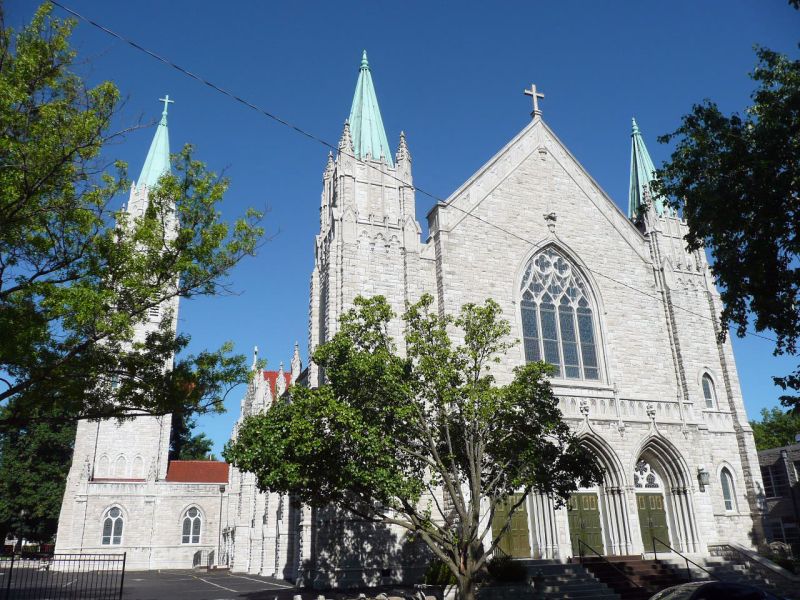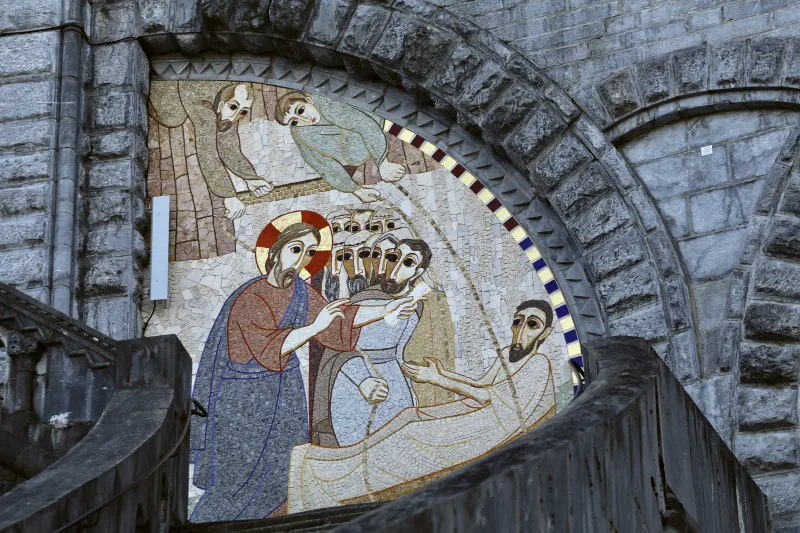 The Cathedral of Saint Peter in Kansas City, Kansas, located in the Diocese of Kansas City, which was one of the four dioceses named in the state’s clergy abuse investigation. / Mwkruse|Wikimedia|CC BY-SA 4.0
The Cathedral of Saint Peter in Kansas City, Kansas, located in the Diocese of Kansas City, which was one of the four dioceses named in the state’s clergy abuse investigation. / Mwkruse|Wikimedia|CC BY-SA 4.0
Boston, Mass., Jan 11, 2023 / 10:35 am (CNA).
Kansas authorities investigating clerical sex abuse have identified 188 Catholic and Society of St. Pius X clergy members who are suspected of committing various crimes, according to a report released following a four-year-long investigation.
No charges have resulted from the investigation because the statute of limitations on the cases has expired or the accused priests are deceased.
The Society of St. Pius X, commonly referred to as the SSPX, is a traditionalist group, founded by Archbishop Marcel Lefebvre in 1970, which has an irregular canonical status. The group is not overseen by the Catholic Church or any diocese within the Catholic Church.
The identities of the priests were not revealed in the report, which said that the investigation’s scope spanned from 1950–2022. It is not clear how many of the accused were Catholic clergy and how many were SSPX clergy.
Melissa Underwood, communications director for the Kansas Bureau of Investigation (KBI) told CNA she did not have information on the division of allegations.
The report says that 125 criminal cases were initiated and 30 charging affidavits were distributed to prosecutors. A charging affidavit lays out the essential facts of the alleged offense by the perpetrator.
However, no prosecutor has filed charges against a clergy member as of Jan. 10, Underwood said.
“In nearly all cases involving those offending priests, the statute of limitations had expired or the priest was no longer living. Both situations prevented prosecution of the offending priests,” the report says.
The report said that the 30 charging affidavits involved 14 priests. Clergy sexual abuse occurred in all four Catholic dioceses of Kansas, which includes the Archdiocese of Kansas City, the Diocese of Salina, the Diocese of Wichita, and the Diocese of Dodge City.
Allegations were also brought against the SSPX, which was added to the investigation in 2019, as well as a Capuchin order of priests that operates within Kansas dioceses. The report did not name the Capuchin province.
The report did, however, mention an encounter at a Colorado ranch run by the Franciscan Capuchin province “where multiple offender priests reside.”
“Our agents were met by staff who informed the priests why the KBI was there. The priests declined to meet with the KBI agents. Therefore, there was no access to those priests for questioning,” the report said.
The report found “many of the same issues reported by the 2018 Pennsylvania grand jury investigation that related to the Church’s handling of abuse allegations were, in general, identified and documented in the KBI investigation as well.”
Certain Church practices and circumstances “served to obscure the truth about both the allegations of child abuse and sexual assault and their handling of such allegations,” the report said.
The report gave nine examples of challenges that the KBI faced in its investigation.
-
Some victims had signed nondisclosure agreements with the Church in a civil lawsuit and “were reluctant” to provide information.
-
The priests or victims had died in many cases.
-
Church officials would often use euphemisms to minimize the severity of sexual abuse by clergy.
-
Allegations of sexual abuse would sometimes not be reported to law enforcement by Church officials.
-
Parishioners were not offered transparency from the Church on sexual abuse.
-
Dioceses did not practice good record-keeping. The deletion of documents related to sexual abuse, whether intentional or unintentional, resulted.
-
Diocesan investigations into past sex abuse allegations were insufficient.
-
Each diocese failed to follow its own policy on sex abuse allegations of the clergy.
-
Church officials “frequently attempted to avoid scandal” and would not take action against offending clergy. The Church would move offending priests to different assignments, continue its financial support of the priest, fail to laicize the priest, and fail to monitor the priest.
The report said that the “investigation found a common thread regarding the prevalence of sexual abuse at the hands of clergy within a particular diocese in that it appears to be directly related to the degree of tolerance allowed by the bishop.”
The bishop was made aware of sex abuse allegations “to at least some degree” in most cases, the report said.
“Some bishops handled the allegations appropriately, but many others facilitated further abuse of minors by concealing the crimes or reassigning the priest to a new parish,” the report said.
The report said that priests would often use their position of authority to discourage the victim from reporting them.
“Several victims relayed accounts of being told that what was happening to them was okay because he was a priest. At least one victim reported being told by his offender that if he told anyone he would go to hell,” the report said.
The long-term effect of the abuse on the victims was also detailed in the report.
“Throughout the investigation, our team heard from many victims who attributed their alcohol or drug abuse, or their ‘wrecked lives,’ to the sexual abuse they endured,” the report said.
The report said that a few of the victims interviewed were in prison and partly attributed their incarceration to their abuse from the clergy. In certain cases where the victims of sexual abuse had committed suicide, the family of the victims said that they believed the victim’s death was directly correlated to the abuse.
“Our agents witnessed men, now in their 60s and 70s, break down in tears as they reported their sexual abuse to our team,” the report said.
According to the report, the SSPX investigation will continue.
The investigation began in November 2018 at the request of Archbishop Joseph Naumann of the Archdiocese of Kansas City.
A Jan. 7 statement from the Archdiocese of Kansas City said: “The archbishop expressed his gratitude to the Kansas attorney general for the professionalism and thoroughness he and the Kansas Bureau of Investigation brought to the study.”
Naumann said in the statement: “You cannot read this report without your heart breaking.”
“Like other dioceses across the country, the dioceses in Kansas have for some 20+ years implemented programs to protect children and vulnerable adults in its parishes and schools, and the report indicates a steep decline in allegations in recent decades,” the statement said.
“But the most significant change Archbishop Naumann has introduced locally has been adopting a victim-centered approach using restorative principles to address the grave harm of abuse. He prays these efforts will be successful and provide a new avenue to bring healing to victims in the future,” the statement said.
The full statement can be read here.
If you are aware of abuse or neglect, a report can be made to the Kansas Protection Report Center at 800-922-5330. If you are aware of abuse by a cleric or someone employed by the archdiocese, regardless of when the abuse happened, the archdiocese has a confidential report line that can be contacted at 913-647-3051.
One can also make a report online using this link.
[…]





